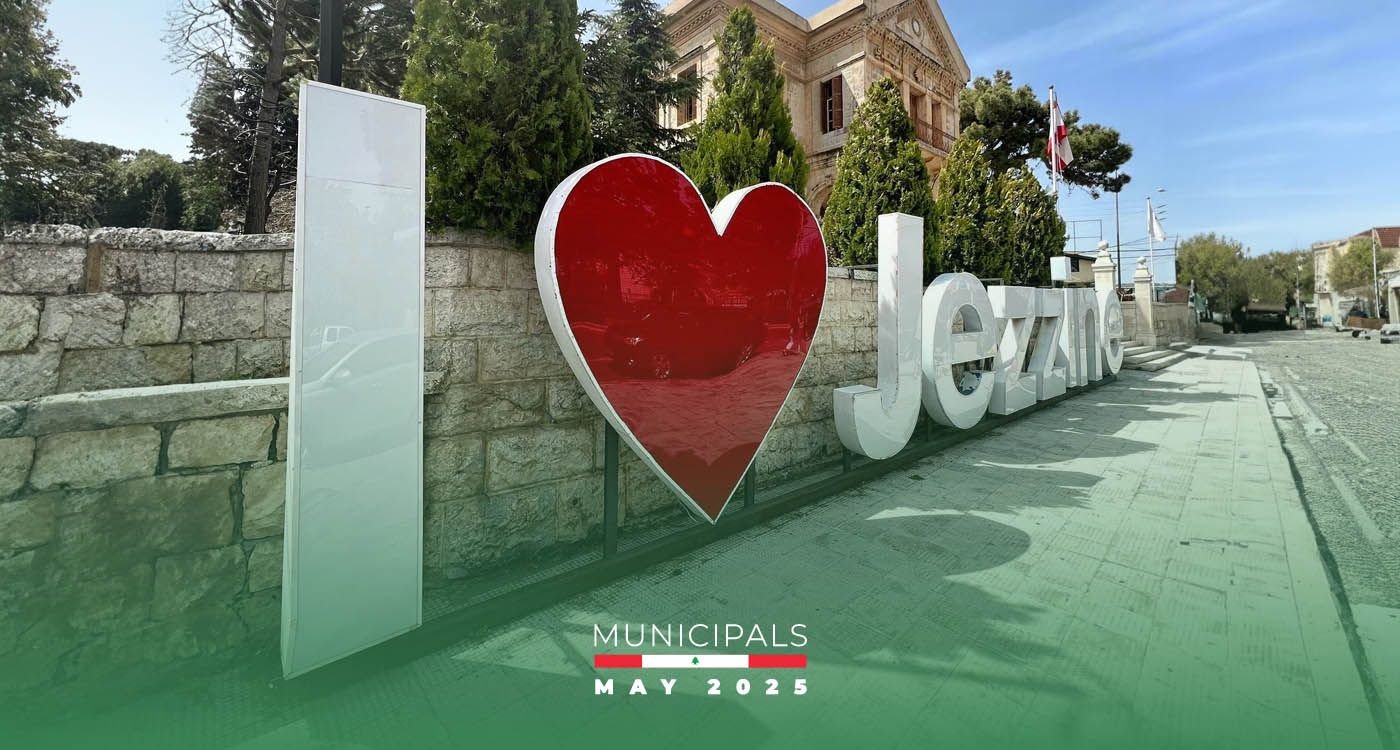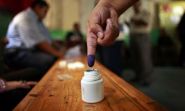
Jezzine Municipal Elections: FPM and LF Neck and Neck
With municipal elections scheduled for Saturday, May 24, 2025, the southern Lebanese town of Jezzine is bracing for a vote with significant political consequences. Beneath the calm facade of this picturesque destination—famous for its 40-meter waterfall and home to Lebanon’s largest stone pine forest—a fierce electoral battle is unfolding. Unlikely alliances, mounting tensions and a strong desire for change from past governance are defining this year’s race.
Eighteen municipal council seats are up for grabs, and candidates are vying for them in a heated race. Campaign posters of David El-Helou, supported by the Free Patriotic Movement (FPM), and Bechara Aoun, notably backed by the Lebanese Forces (LF), can be seen plastered along the route from Beirut to Saida and throughout Jezzine—a visible sign of the symbolic and fiercely contested nature of this race.
A Critical Test for the FPM
The upcoming municipal elections in Jezzine are crucial for the FPM, which is fighting to maintain control of a municipality it has governed for nearly two consecutive terms. After its setback in the 2022 parliamentary elections, where it lost all three local seats, Gebran Bassil’s party is determined to secure its political foothold in this key stronghold.
In a bid to strengthen its position, the FPM has forged an unexpected alliance with former rival Ibrahim Azar, a former Amal Movement MP. This coalition also includes the Syrian Social Nationalist Party (SSNP).
On the opposing side, Bechara Aoun heads a list composed of independent families, bolstered by the LF and Kataeb parties. This opposition is focusing on renewal, competence and transparency, hoping to appeal to an electorate increasingly disillusioned with entrenched factional struggles.
An Unlikely Alliance
The FPM-Azar alliance has taken many by surprise. Once bitter rivals on the local political scene, their unexpected partnership has raised eyebrows and sparked criticism, even within their own ranks. Notably, Gebran Bassil had previously accused Nabih Berri, Speaker of Parliament and leader of the Amal Movement, of undermining the presidency of Michel Aoun, alleging that Berri “prevented him from governing.”
“This alliance seems to be a strategic move for the FPM ahead of the 2026 parliamentary elections, as the party seeks to stay politically afloat,” a source close to the situation in Jezzine told This is Beirut.
Internal divisions have also surfaced within the FPM. Former MP Ziad Assouad, sidelined by Bassil, has accused the party of monopolizing local alliances. While he declared support for David El-Helou’s candidacy, Assouad also said he would not vote for any candidates affiliated with political parties—regardless of the list. This opens the door to a mixed vote by his supporters, potentially including votes for the rival list, further complicating the FPM’s position.
David El-Helou, a familiar name in local politics, is the brother of Ghazi El-Helou, a loyal FPM ally and Walid El-Helou, the former head of the municipal council. Disagreements between Walid and the FPM caused tensions in previous terms, adding further complexity to the internal dynamics. These family conflicts, combined with the rifts within the FPM, threaten to undermine the cohesion of their list.
Jezzine: Crucial for Hezbollah
To date, 10 of the 37 villages in the Jezzine district have had their municipal councils appointed by default, several of which hold a Shia majority. In regions where the Amal-Hezbollah duo is dominant, efforts are being made to reach a consensus and avoid electoral clashes.
Jezzine is a strategic Hezbollah stronghold and the group maintains a significant presence in the area. Weakened by its recent conflict with Israel, the Iran-backed movement is keen to preserve its foothold in the region. According to a source close to the situation, a meeting between Hezbollah and the FPM was reportedly held in the southern suburbs of Beirut, Hezbollah’s base, where a clear message was conveyed, “We cannot afford to lose Jezzine.” The region is seen as pivotal for both parties in the upcoming 2026 parliamentary elections.
Relations between Hezbollah and the FPM have soured in recent years, especially after the FPM opposed Hezbollah’s decision to open a “support front” in Gaza in 2023 and refused to support its endorsement of Sleiman Frangieh’s presidential candidacy—firmly rejected by Bassil.
The Electoral Asphalt
Another noteworthy development is the recent rehabilitation of Jezzine’s western access road, known as Maabour, which had been under construction for three years. Although the completion—financed by the World Bank—was welcomed by residents, its timing, just before the vote, has been widely interpreted as a politically motivated move to boost the FPM’s image. The LF have criticized the move as a “politicization of development.”
Beyond the city, family-driven electoral battles are expected to intensify in several villages in the Jezzine district, including Roum, Haytoura, Aytouleh, Kfar Falous, Ain el-Mir and Lebaa, according to a municipal source cited by This is Beirut.
The stakes go beyond the municipal elections themselves. The winner will also control the Jezzine Municipal Federation, a powerful body that plays a key role in securing funding and fostering development throughout the district.
The FPM hopes to shift public perception and overcome accusations of mismanagement, particularly those targeting the current municipal council president, Khalil Harfouch, who has recently faced renewed allegations of abuse. For the LF, a victory—or even a significant breakthrough—in Jezzine would be a major achievement, reinforcing their strong performance in the 2022 parliamentary elections, just one year ahead of the next parliamentary race.




Comments